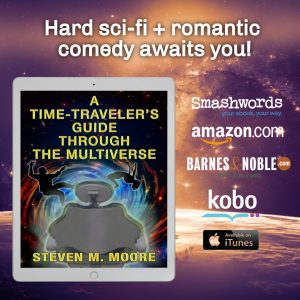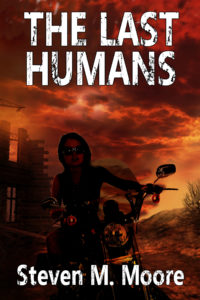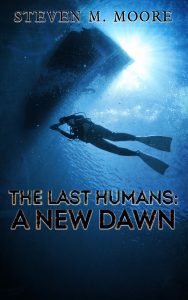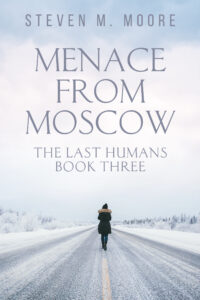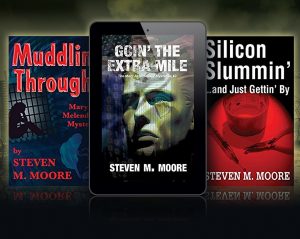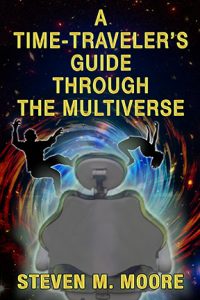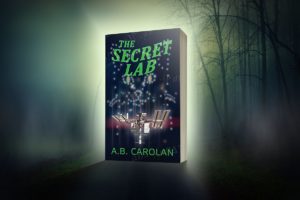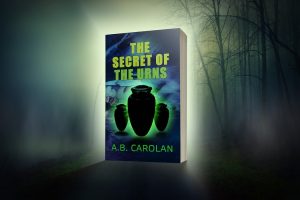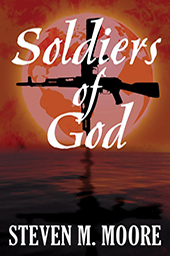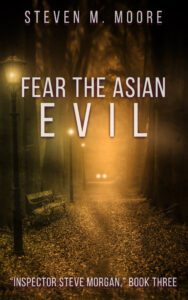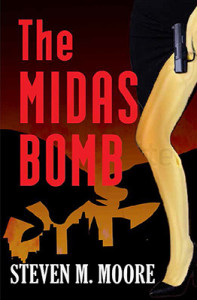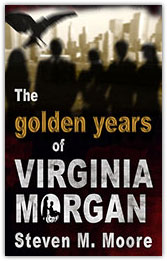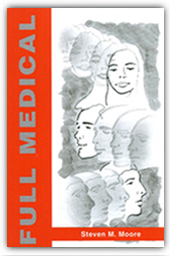Are some stories too complex for you?
November 15th, 2023After writing my review of Jake Tapper’s new novel (last week’s post), I realized I could summarize it by saying it contains complexity but is lacking in plot. Like some of my own stories, it mixes real-world characters (Evel Kneival and Ronald Reagan, for example) and some based on real-world characters (Rupert Murdoch’s family, for example) with fictional characters. (My latest “Esther Brookstone Art Detective” and “Inspector Steve Morgan’ novels do that as well.) But mine are more than complex; I also emphasize plot!
Yet the question remains: Does complexity get in the way of the two more common elements of storytelling, namely plot and characterization? The answer: It depends. I’d suggest that Mr. Tapper and I share a common belief with many authors that our readers should have to work a bit as well, simply because fiction must seem real, and real life is complex. Ignoring any of our flaws for the moment, I and others (mostly small press- and self-published authors, of course—the Big Five’s authors are always perfect, aren’t they?) are told we have to sacrifice marketability to the masses to remain true to those more important literary standards. Said another way, authors who write pablum like Mr. Tapper and other celebs rarely write complex tales that make readers think about issues that go beyond pure entertainment, existential issues of our time, for example. Mr. Tapper perhaps focuses on a minor one in the grand scheme of things: Sensational journalism created by bending and distorting the truth. That’s too obvious a topic for arguably the best reporter on TV. I’ve considered it a few times but many more themes as well. The latter is why my writing must be complex.
Many people don’t want complexity when they read a book, if they read them at all. Subgenres like sappy romances, cozy mysteries, flighty fantasies, and others have become popular simply because readers can peruse them without thinking about the important topics too much. Books in these subgenres aren’t complex; they’re less deep than most young adult books, in fact!
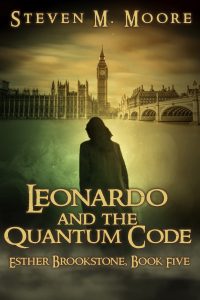 Yes, complexity isn’t popular because it makes people think. Recently (10/23/2023), I saw an article in the NY Times about how quantum computers can end encryption schemes as we know them. I had to smile. This is the main theme of Leonardo and the Quantum Code (#5 in the “Esther Brookstone Art Detective” series); that novel is complex. (I even define what an “entangled state” really is. Surprisingly, many researchers in that arcane area of science and technology don’t know the simple definition, which makes the topic complex, of course.) If this novel, where Russia, the UK, and the US are after the quantum tool that goes far beyond the one to decrypt the Enigma Code isn’t complex enough for you, or even just right for your reading adventures, you’re my kind of reader. If you say it’s too complex, I’m sorry. Please go away and find a silly romance or cozy mystery to read.
Yes, complexity isn’t popular because it makes people think. Recently (10/23/2023), I saw an article in the NY Times about how quantum computers can end encryption schemes as we know them. I had to smile. This is the main theme of Leonardo and the Quantum Code (#5 in the “Esther Brookstone Art Detective” series); that novel is complex. (I even define what an “entangled state” really is. Surprisingly, many researchers in that arcane area of science and technology don’t know the simple definition, which makes the topic complex, of course.) If this novel, where Russia, the UK, and the US are after the quantum tool that goes far beyond the one to decrypt the Enigma Code isn’t complex enough for you, or even just right for your reading adventures, you’re my kind of reader. If you say it’s too complex, I’m sorry. Please go away and find a silly romance or cozy mystery to read.
Complexity isn’t everything I look for in my own reading, but it’s important to me as a reader as much as it is for me as an author. Mr. Tapper’s book wasn’t satisfying for me in that sense as much as other mystery/thriller novels (if that’s what it was). And I certainly can’t criticize it for being too complex.
***
Comments are always welcome. (Please follow the rules on the “Join the Conversation” web page.)
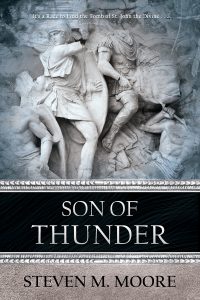 Son of Thunder. While Leonardo and the Quantum Code isn’t the most complex novel in the “Esther Brookstone Art Detective” series, this second book in the series probably is because it’s historically complex. Three stories run through it until they finally come together, similar to Mr. Tapper’s sister-and-brother stories mentioned above, but these are much more meaningful. The reader can think of this novel as The DaVinci Code done right because historical events contained within are real and true (most of Dan Brown’s weren’t, but that was because he was scammed into believing questionable sources!). The earliest story is about the life of St. John the Divine: I conjecture that the missing years between the Crucifixion and his death were spent as a rebel and missionary with time off taken to care of Mary, the mother of Christ! The next story is where Renaissance painter Sandro Botticelli goes to Turkey in search for St. John’s tomb. The third is where Esther tries to prove the artist was never there, but she must change her mind when documents found at the “House of Mary” shrine lead her to that very tomb! (That house is indeed a Vatican shrine; Botticelli’s visit was my invention…but it could have happened.) The complexity here is intentional, of course, making this Esther Brookstone story one of the best in the series, a mystery/thriller story certainly differing from any other you’ll read and designed to make you wonder, can all this really have occurred?
Son of Thunder. While Leonardo and the Quantum Code isn’t the most complex novel in the “Esther Brookstone Art Detective” series, this second book in the series probably is because it’s historically complex. Three stories run through it until they finally come together, similar to Mr. Tapper’s sister-and-brother stories mentioned above, but these are much more meaningful. The reader can think of this novel as The DaVinci Code done right because historical events contained within are real and true (most of Dan Brown’s weren’t, but that was because he was scammed into believing questionable sources!). The earliest story is about the life of St. John the Divine: I conjecture that the missing years between the Crucifixion and his death were spent as a rebel and missionary with time off taken to care of Mary, the mother of Christ! The next story is where Renaissance painter Sandro Botticelli goes to Turkey in search for St. John’s tomb. The third is where Esther tries to prove the artist was never there, but she must change her mind when documents found at the “House of Mary” shrine lead her to that very tomb! (That house is indeed a Vatican shrine; Botticelli’s visit was my invention…but it could have happened.) The complexity here is intentional, of course, making this Esther Brookstone story one of the best in the series, a mystery/thriller story certainly differing from any other you’ll read and designed to make you wonder, can all this really have occurred?
Around the world and to the stars! In libris libertas!

